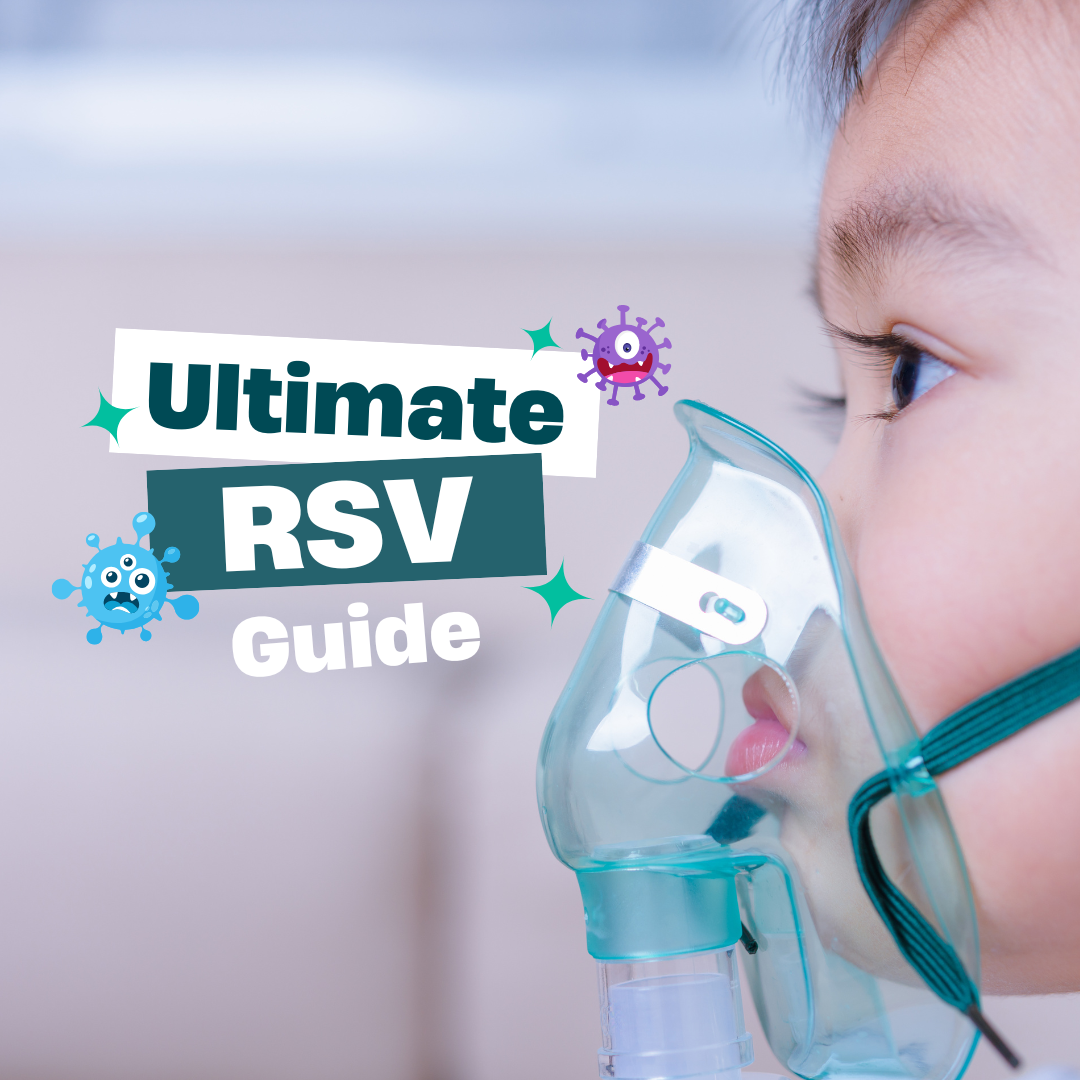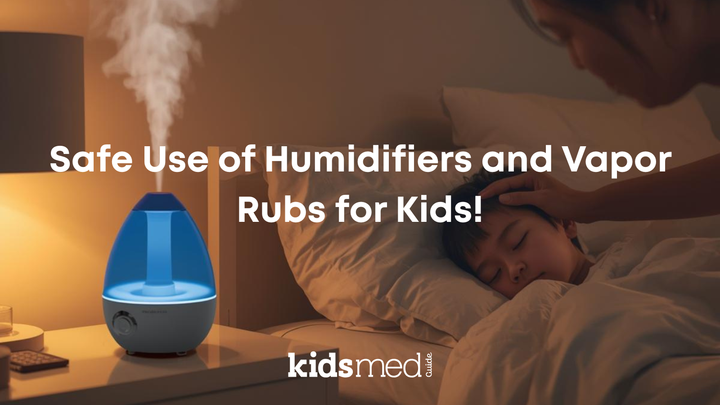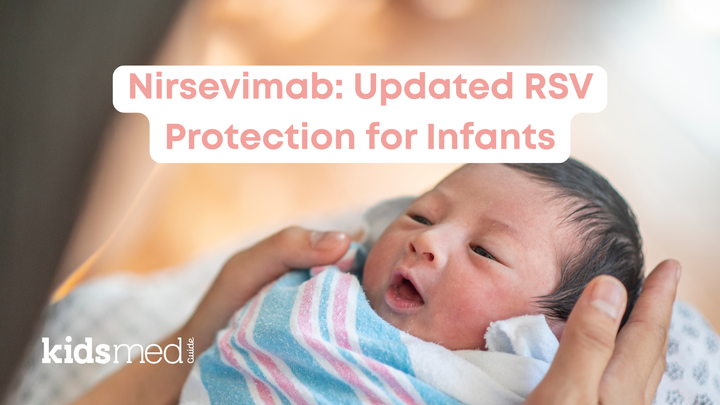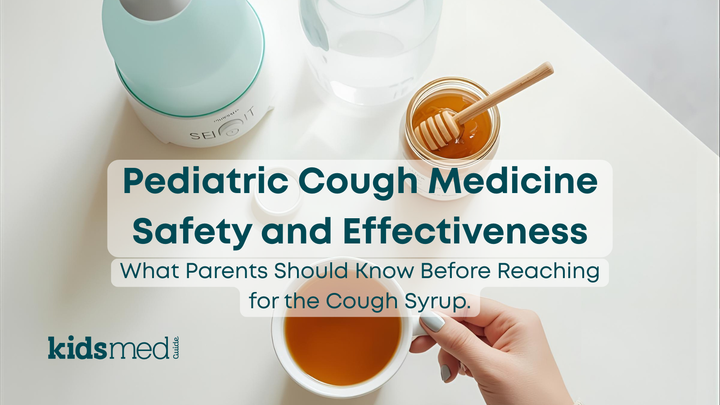On the News and in the Air: The Ultimate Respiratory Syncytial Virus (RSV) Guide

As you may have heard, Respiratory Syncytial Virus (RSV) was here for the holidays and will be here for the start of the New Year. An unwanted house guest, RSV is a common respiratory infection that primarily affects the airways—nose, throat, and lungs.
While it often presents as a mild cold in older children and adults, RSV can be more severe in young children and progress into a lower respiratory infection in babies and toddlers, causing more serious illnesses like bronchiolitis or pneumonia.
It's estimated that almost every child will contract RSV before their 2nd birthday, with 20-30% of children experiencing more moderate-severe infections that cause bronchiolitis or pneumonia. 2-3% of those kids may require hospital supportive care. RSV is the most common cause of pneumonia in infants under the age of 1 year.
It's important to note that these statistics are derived mainly from before new RSV immunizations were widely available. Hopefully, these statistics will improve in the coming years!
When Does RSV Occur?
RSV typically follows a seasonal pattern, with the virus circulating most frequently during the colder months. In the United States, RSV activity peaks between late fall and winter, and viral activity is significantly elevated from December to January.
The past few years have been atypical due to COVID disruptions, but this season (2024-2025) is reverting to historical patterns. The CDC reports that positive RSV tests and RSV-related emergency department admissions are on the rise, with the highest numbers so far reported in late December.
Who is at Higher Risk?
Anyone can contract RSV; it's incredibly common and very contagious! You've likely had it recently and perhaps not realized. In older kids and adults, RSV usually causes common cold symptoms. However, certain groups are more likely to develop severe infections.
Infants, especially those under 6 months old, are at the highest risk. Premature babies face even greater vulnerability.
Children under age 2 to 5 years of age with underlying health conditions—such as chronic lung disease, congenital heart conditions, or weakened immune systems—are also more susceptible.
For the grandparents in your life, be aware that adults aged 60 and older, especially those with chronic health issues, may experience more severe symptoms if infected with RSV.
Preventing RSV
There is no specific treatment for RSV (except in rare and extraordinary circumstances); even in the hospital, only supportive care options exist. Therefore, prevention is the most effective way to reduce the risk of serious illness from RSV.
While you may not be able to eliminate the risk, here are some considerations to try to prevent infection if you have a high-risk child or family member:
Vaccines and medications:
New immunization options, such as nirsevimab (Beyfortus®) for all infants, RSVpreF (Abrysvo®) for pregnant individuals, and palivizumab (Synagis®) for high-risk infants, offer protection against severe disease.
The CDC recommends that all babies be protected via Abrysvo® or Beyfortus® immunizations during their first RSV season, and some high-risk babies should receive additional protection from Beyfortus® during their second RSV season.
Talk with your healthcare providers to see which of these options are suitable for your child. Which immunization is recommended depends on the timing of pregnancy/delivery compared to peak RSV season and the mom's vaccination status in subsequent pregnancies.
Synagis® is an additional option for certain high-risk children.
Practice good hygiene:
One of the most important ways to prevent RSV is to frequently wash hands with soap and water for at least 20 seconds.
Disinfect surfaces:
Regularly clean high-touch surfaces such as doorknobs, toys, and countertops to prevent the spread of germs.
Limit exposure to sick individuals:
If RSV is circulating in your community, avoid close contact with anyone showing symptoms of respiratory illness and keep your young baby away from crowded places.
This is a tough one—families must weigh their individual risk tolerance versus the mental health benefits of seeing friends and family, especially over the holiday season.
Talk with your pediatrician for guidance. But in my opinion, whether you choose to socialize or not, don't allow anyone who is sick to hold or kiss your young baby!
Managing RSV Infection
Many RSV infections can be managed at home with supportive care. I'll be honest - RSV in babies is not fun. Expect some long days and sleepless nights.
Even though many young kids do fine and don't need a doctor or ER visit, days 3-5 of an RSV infection can be pretty gnarly. The poor kids get so stuffed up with mucous, and they may also develop a rattling cough that makes it difficult to eat, sleep, and breathe.
The focus should be on keeping your child comfortable, able to breathe easily, and well-hydrated, but if you have any concerns about your child's breathing or hydration, please get them checked out by a healthcare provider ASAP.
Hydration:
Ensure your child drinks plenty of fluids to stay hydrated. Mucous and congestion lead to "insensible losses" of fluid, which, coupled with a cough and generally feeling crummy, may lead to the inability or lack of desire to nurse or bottle-feed—all of which can cause dehydration.
Breastfed babies should be allowed to nurse as often as they would like. Nursing will comfort irritated nasal passages, help break up mucous, keep babies hydrated, and confer protective antibodies!
Similarly, bottle-fed babies should also be offered formula or expressed milk frequently.
Older toddlers should be offered food and fluids. You can use Pedialyte® if you are concerned about dehydration and your child's not eating, as it will provide fluids and needed sugar and salt.
Saline drops and nasal aspirators:
For infants with congestion, saline nasal drops and a bulb syringe can help clear mucus and ease breathing.
If your baby is very stuffy, struggling to eat, or having gagging episodes due to mucous, apply saline to the nose and suction with a bulb device or Nose Frida. Consider doing this before every nursing/feeding session.
Please note: If this doesn't work, seek medical care, as dehydration or difficulty breathing could settle in quickly.
Warm steam from the shower can also help break up mucous and ease breathing.
When my kids were babies and had RSV bronchiolitis, I pretty much lived in the warm, steamy bathroom with my saline and Nose Frida for days 3-5 of the illness. I'm sure my hot water bill was enormous!
Saline nebulizers:
If saline, suction, and warm steam aren't working, you'll likely need to see a doctor for assessment and treatment.
Some babies with RSV need saline nebulizer treatments. A nebulizer is a machine that turns normal saline (or other inhaled medications) into mist and delivers that mist via a mask directly into your child's nasal passages and airway.
Inhaled saline helps break up nasal and chest congestion, making breathing and drinking fluids easier.
Some over-the-counter nebulizer options are available, but with infants having trouble with RSV, I would skip the OTC option and head straight to the doctor for a professional machine.

Cool mist humidifier:
Like any cold virus, running a cool mist humidifier will help ease congestion at night.
Fever management:
Fever is common with RSV. If your child develops a fever, consider using fever-reducing medications like acetaminophen or ibuprofen (after age 6 months).
This may help them feel more comfortable and perk them up enough to want to nurse or take bottles. Please note that fevers under 3 months are urgent and should be evaluated by a healthcare provider.
Rest:
Make sure your child gets plenty of rest and sleep. They'll be fussy and feel crummy, especially on days 3-5 of illness.
When to Seek Medical Help
While many cases of RSV can be treated at home, there are times when medical attention is necessary. Be on the lookout for the following warning signs:
- For Babies Under 12 Weeks Old: A fever above 100.4°F requires immediate medical attention.
- Signs of Respiratory Distress: This is the biggest concern with RSV infections in infants. Please pay attention to their respiratory status.
- Difficulty breathing, rapid or shallow breathing, or wheezing should prompt a visit to the doctor, ER, or urgent care. Flared nostrils, belly breathing, or retractions (when the ribs appear to be moving in and out and working hard) are signs of difficulty breathing. A rattling sound (described to me by one pediatrician as a "washing machine" sound) may indicate RSV bronchiolitis.
- Babies with respiratory distress need medical help in the hospital. These kids may receive IV fluids, oxygen, or other supportive care treatments.
- Check out this American Academy of Pediatrics guide that explains RSV symptoms and includes examples of abnormal baby breathing!
- Dehydration: Signs include a dry mouth, lack of tears when crying, sunken soft spot, or significantly reduced urine output. Babies should make at least 3-4 wet diapers daily when sick; less than that may indicate dehydration.
-Persistent High Fever or Worsening Symptoms: A fever that doesn't subside with medication or worsening symptoms warrants professional evaluation. Bronchiolitis or pneumonia usually develops mid-late in the course of the disease. Kids are also susceptible to ear infections following an RSV infection.
- Lethargy or Irritability: If your child becomes unusually tired, difficult to wake, or unusually irritable, it could be a sign that their condition requires immediate attention.
- Chronic Health Conditions: Children with pre-existing health conditions, such as heart or lung diseases, are at higher risk of complications from RSV. Contact your healthcare provider early for advice and guidance if they develop symptoms.
In Conclusion
Parents and caregivers can protect their children from RSV by understanding what it is and how it presents. Babies, especially those under 6 months of age or those who are premature or with other health conditions, are especially at risk.
Prevention efforts may include immunizing pregnant mothers or infants to provide coverage during RSV season. With support, most RSV infections resolve without complications, but knowing when to seek medical attention can make a difference in protecting your child's health.
The following references were used to compile this information:
CDC. (2024a, September 12). About RSV. Respiratory Syncytial Virus Infection (RSV). https://www.cdc.gov/rsv/about/index.html
CDC. (2024b, December 3). Immunizations to Protect Infants. Respiratory Syncytial Virus Infection (RSV). https://www.cdc.gov/rsv/vaccines/protect-infants.html
CDC. (2025, January 3). Respiratory Virus Activity Levels. Respiratory Illnesses. https://www.cdc.gov/respiratory-viruses/data/activity-levels.html
Respiratory Syncytial Virus. (2024). https://doi.org/10.1542/9781610027373-S3_017_003
RSV Immunizations: New Ways to Protect Babies. (2024, October 11). HealthyChildren.Org. https://www.healthychildren.org/English/safety-prevention/immunizations/Pages/RSV-immunizations-new-ways-to-protect-babies.aspx
RSV: When It’s More Than Just a Cold. (2019, November 4). HealthyChildren.Org. https://www.healthychildren.org/English/health-issues/conditions/chest-lungs/Pages/RSV-When-Its-More-Than-Just-a-Cold.aspx



